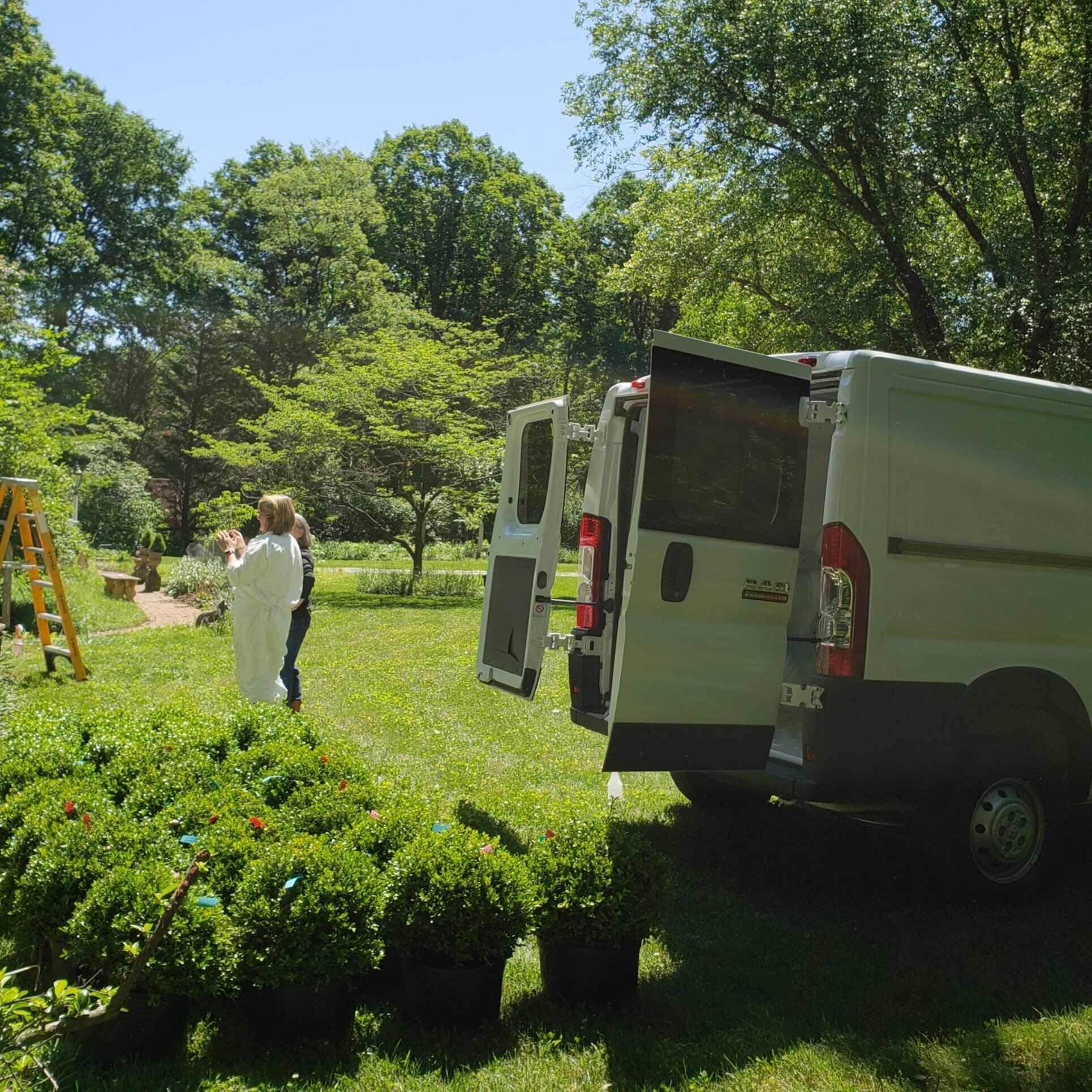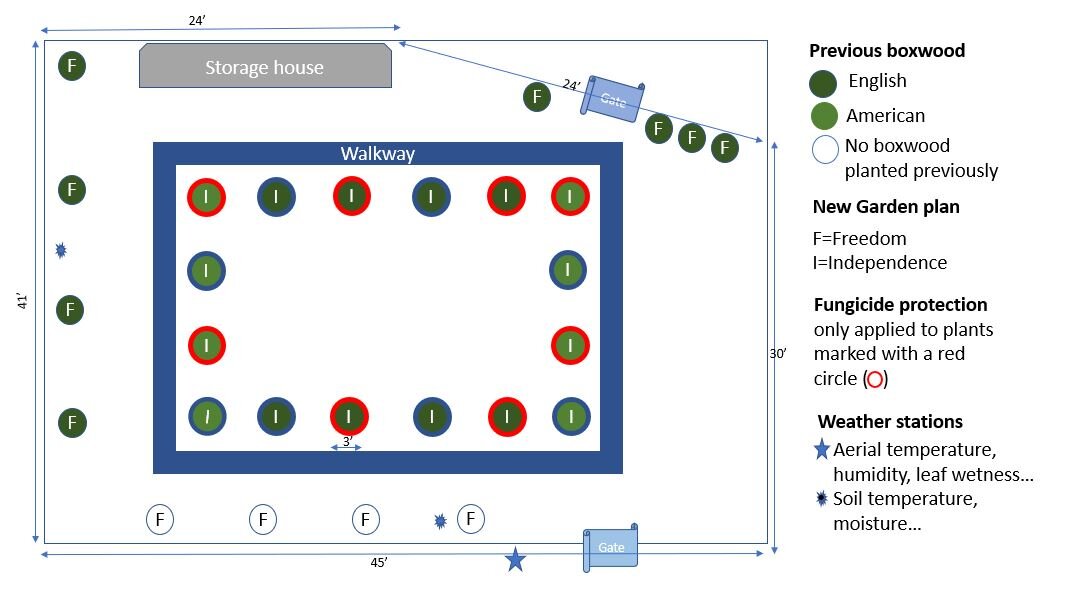One of the most common questions gardeners and landscapers face after having dealt with a Boxwood Blight infection is if it is safe to re-plant boxwood? Because there are many factors to consider, it can be a tricky question to answer with certainty. Luckily NewGen® had the opportunity to partner with a research team from Virginia Tech on a project to determine how more resistant boxwood cultivars may perform at a recently infested landscape site after diseased plants and debris have been removed.
Blighted boxwood shrubs, January 2019.
The property where the experiment is currently taking place is a 30-year-old residential garden located outside of Richmond, Virginia. This garden had over 400 well-established boxwood, mostly American (Buxus sempervirens) and English (Buxus sempervirens ‘Suffruticosa’). Some boxwood were surrounded by perennials and ground covers such as Pachysandra, another known host for Boxwood Blight. The garden borders a native forest with large trees, leading to deer and other wildlife regularly moving throughout the property.
The connection between the homeowner and the researchers at Virginia Tech began in late 2015 after the homeowner came back from vacation in August to find some of her boxwood infected with Boxwood Blight. After speaking with an Extension agent to confirm the disease, the agent connected her with Dr. Chuan Hong, Professor of Plant Pathology at Hampton Roads Agricultural Research Center.
Dr. Hong and his team have since performed a series of research projects to better understand Boxwood Blight. Of the most practical were mulching trials. Those trials were essential to extending the benefits of mulch for Boxwood Blight mitigation.
Gated garden where the trial took place. Dark black spots are location where previously infected boxwood existed and have since been removed and the ground flamed to reduce soil inoculum.
In early 2019, Dr. Hong began a new research project focusing on restoring the boxwood garden with more resistant cultivars as a major component, along with several other innovations. Bennett Saunders, Dr. Hong, and others evaluated the site in early March of 2019 to make plans for the “New Garden” project which would take place in a gated section where all large boxwood shrubs were destroyed.
Bennett Saunders, Dr. Hong and the research team evaluating the site in March of 2019.
A truck load of NewGen Independence® ready to be planted in May of 2019.
Later that month Dr. Hong and his team began the clean-up step. This included removal and burning of aboveground parts of the plants, followed by flaming fallen leaves and debris with propane torches and then digging and removing all stumps. In May of that same year, the garden was replanted with NewGen Independence® along four sides of the central square, and NewGen Freedom® along the fence. Immediately after replanting, soil surface underneath and surrounding each NewGen boxwood was mulched to prevent the Boxwood Blight pathogen moving from the soil onto plant foliage by water splash. A weather station, plus two soil moisture probes, were also installed to gather on-site environmental data to determine whether preventative fungicide sprays were needed. When needed, every other Independence boxwood was sprayed preventatively, while the other boxwood were left as nontreated control plants.
Layout of New Garden trial.
Although the experiment is still on-going, early results have been very promising! As of September 2020, all the plants have been through the better part of two Boxwood Blight seasons and are showing no symptoms of Boxwood Blight regardless of fungicide protection. All plants are evaluated regularly, and fungicides are only sprayed when weather conditions are very conducive to the disease.
NewGen Independence® showing no symptoms of Boxwood Blight a year and a half after being planted.
NewGen® believes that the future of boxwood combines best management practices and more resistant boxwood cultivars. Early results of this trial confirm that message! The future of boxwood is bright, and this beloved shrub will continue to grace landscapes and gardens for generations to come.
A clean NewGen Freedom® continues to perform in the landscape, showing no signs of Boxwood Blight.







